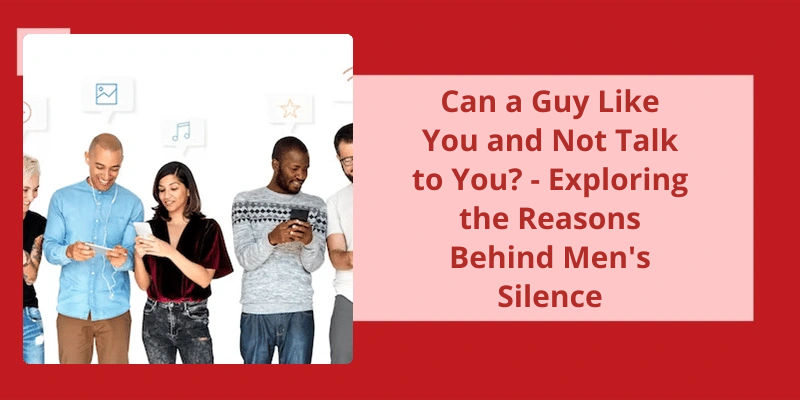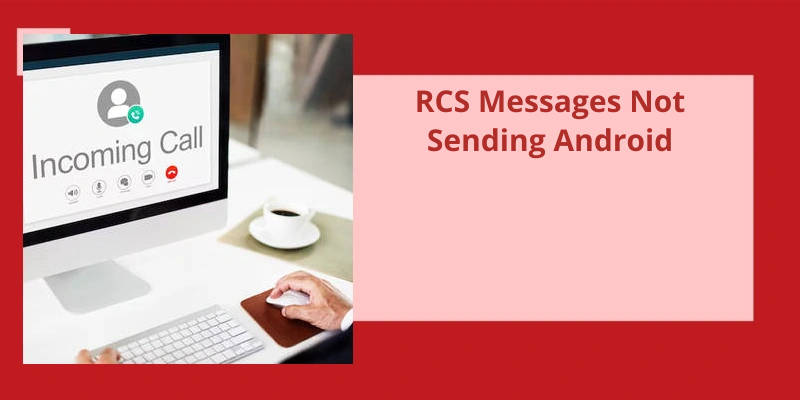Greetings and salutations to all readers! Today, we shall embark on a journey to explore the art of social etiquette and delve into the question of what to say in response to the ubiquitous phrase "welcome". A fundamental aspect of interpersonal communication, expressing gratitude and acknowledging kindness is essential in building and maintaining relationships. Therefore, whether in a formal setting or a casual encounter, knowing the appropriate responses to a welcoming gesture can go a long way in leaving a positive and lasting impression. So, let’s join hands and discover the various ways to respond to a welcome with grace and tact.
What Does Welcoming Me Mean?
Defines a welcome as “a linguistic or social gesture or act designed to introduce a stranger to an unfamiliar situation or to greet a familiar person in a new setting.”. This act of hospitality is a common thread that runs through different cultures and societies around the world.
At it’s core, welcoming is about creating a sense of belonging and inclusion. It’s about acknowledging that someone is new to a situation or place and taking the time to make them feel accepted. By extending welcoming gestures to those who’re different from us, we can build bridges of understanding and empathy that transcend cultural, religious, and racial boundaries.
In a world that can often feel cold and unwelcoming, extending hospitality and kindness to others is a powerful act of resistance. It sends a message that we’re all connected as humans, and that our differences shouldn’t be a barrier to kindness and compassion. Whether it’s welcoming a new neighbor, a colleague at work, or a stranger we meet on the street, the act of welcoming is one of the simplest yet most powerful ways we can make a positive contribution to the world around us.
By building bridges of welcome and hospitality, we can create a world where everyone feels accepted, valued, and loved. So next time youre faced with an opportunity to extend a warm welcome to someone, seize the moment and embrace the power of hospitality. You might just be surprised by the positive impact it’s on the world around you.
Different Cultural and Linguistic Practices of Welcoming
Welcome greetings vary across cultures and languages. Some cultures use handshakes, hugs, or bows, while others use specific phrases or gestures. These practices reflect the values and traditions of each community.
It’s important to understand the appropriate social etiquette when it comes to responding to someone’s welcome. Responding with gratitude and acknowledging their kindness goes a long way in promoting positive social interactions. Let’s explore in more detail the different ways to respond when welcomed.
Can We Say Thank You After Welcome?
However, the question of whether it’s appropriate to say “thank you” after someone says “welcome” depends on the context and purpose of the interaction. In some situations, such as formal events or professional settings, saying “thank you” after welcome may be seen as redundant or overly familiar. Instead, a more formal response such as “thank you for inviting me” or “its an honor to be here” may be more appropriate.
This is especially true when someone welcomes you into their home or offers you a service or assistance. Saying “thank you” in these situations not only shows gratitude, but also helps to build rapport and strengthen relationships.
In some cultures, such as Japan, it’s customary to say “arigato gozaimasu” (thank you very much) in response to a greeting or welcome. In other cultures, such as some parts of Africa, it’s customary to respond with a phrase or acknowledgement that expresses appreciation for the community or group as a whole, rather than just the individual who welcomed you.
The best approach is to be mindful of the context and purpose of the interaction, as well as the cultural norms of the people you’re interacting with. Whether it’s appropriate or not will depend on the situation, but expressing gratitude and acknowledging someones kindness and hospitality is always a good practice.
How Gratitude Can Be Incorporated Into Daily Routines and Habits for Increased Happiness and Satisfaction.
- Write down three things you’re grateful for each day
- Say “thank you” to someone, even for small things they do
- Reflect on positive experiences before bed
- Create a gratitude jar and add notes to it regularly
- Express gratitude towards yourself for your achievements and efforts
- Show appreciation to your loved ones through small gestures or surprises
- Practice mindfulness and focus on the present moment
- Volunteer or donate to a cause you care about
- Make it a habit to find the good in every situation
Source: Is it impolite not to reply ‘You’re welcome’ after someone …
Whether you’re returning to work after vacation, coming back to school after a break or reuniting with friends after a long time, it’s always a great idea to give a warm response to the welcome back wishes. Here are a few phrases that you can use to show your appreciation and excitement for being back in the fold.
What Should I Reply After Welcome Back?
After being away for a while, it’s only natural to feel a bit overwhelmed when returning to your familiar surroundings. However, when greeted with a warm welcome back, it’s important to reply with sincere gratitude. Responding with “Thank you. I feel blessed to be back again” is a thoughtful and appropriate way to express your appreciation.
Another way to respond could be by saying “Feeling happy to be back again.”. This conveys a sense of joy and excitement in returning to a place or group of people that’s dear to you. It’s important to maintain a positive attitude and make the most of the experience.
When rejoining a group of people after a long time, it’s common for one to feel a sense of elation. It’s perfectly reasonable to express this feeling by saying “Glad to see you all after a long time.”. This statement conveys a genuine sense of happiness and appreciation for reconnecting with old friends or colleagues.
“Looking forward to join with you all” is another polite response to a welcome back greeting. By expressing eagerness and anticipation, you’re conveying your enthusiasm to be part of the group once again. It also shows your willingness to dive back into the group dynamic with zeal and passion.
“Great pleasure to be back again” is a respectful and gracious way to respond to a welcome back greeting. This phrase conveys a deep sense of appreciation for the people or organization that you’re returning to. The use of the word “pleasure” suggests that you find joy and satisfaction in being back, and are committed to making the most of your time with the group.
Lastly, responding with “Missed you all and Glad to be back again” is an honest and heartfelt way to acknowledge the time that’s passed. It’s important to let people know that they were missed and that you’re looking forward to reuniting with them. This shows a genuine interest in the people and the group, which can be a great way to bridge the gap between yourself and those you’re reconnecting with.
In essence, what you say when someone welcomes you back will depend on your genuine feelings and emotions. Whether it’s feelings of appreciation, gratitude, excitement, or joy, it’s important to convey your thoughts respectfully and honestly. With these sentiments, you can express your gratitude and appreciation for those around you, which can help you build strong bonds with them in the long run.
It’s a common courtesy to acknowledge someone’s gratitude after welcoming them. While there are various ways to respond, such as “You’re welcome.”, “My pleasure.”, “No problem.” or “No worries.”, the choice of words can reflect your personality and professionalism. It’s important to choose a response that fits the situation and conveys a genuine sense of appreciation for their gratitude.
How Do You Respond to Thank You After Welcome?
When someone thanks you for welcoming them, there are a few different ways you can respond. The most common response is probably “Youre welcome.”. This is a polite and simple way to acknowledge the gratitude of the person you welcomed. “Youre welcome” is a great choice in most situations, whether youre welcoming someone to your home, your office, or just saying hello.
Another response you might choose is “My pleasure.”. This phrase conveys that you were happy to welcome the person and that it was no trouble at all. Saying “My pleasure” adds a touch of warmth and sincerity to the interaction, which is especially appropriate if you know the person well or if they’re a guest in your home.
If youre feeling informal, you might say “No problem” or “No worries.”. These phrases are often used among friends and acquaintances, and they convey a sense of ease and informality. Saying “No problem” suggests that welcoming the person was not an inconvenience for you, while “No worries” conveys that you aren’t concerned about anything related to the welcome.
In some cultures, there may be different phrases commonly used to respond to “thank you” after a welcome. For example, in Japan, it’s common to say “Douitashimashite” as a formal response to “Arigatou gozaimasu.”. This phrase roughly translates to “Youre welcome” but is viewed as more polite and respectful.
How to Respond to “Thank You” in Different Settings (e.g. Work, Social Events, Family Gatherings)
When someone says “thank you” to you, it’s important to respond appropriately depending on the setting. In a work setting, a simple “you’re welcome” would suffice. In social events, you can add more warmth to your response by saying “you’re welcome” or “my pleasure”. With family gatherings, you can go for a more casual response like “no problem” or “don’t mention it”. Overall, the key is to respond with gratitude and acknowledge the person’s appreciation.
As we continue to communicate with others, we often find ourselves in situations where we want to express our gratitude or appreciation towards them. However, repeating the same words over and over can quickly become monotonous. One such word is ‘welcome,’ which, although widely used, can be replaced with numerous other words that convey similar sentiments. Read on to explore different options for expressing gratitude towards others.
What Words Can Be Used Instead of Welcome?
When we greet someone, we often use the word “welcome.”. However, there are many other words that can be used instead of this common greeting. These words not only add variety to our language but also convey different emotions and feelings towards the person we’re talking to.
One alternative to welcome is “appreciated.”. This word implies that we value the persons presence and are grateful for it. It’s often used in professional settings, such as at a business meeting or conference.
This word suggests that the persons arrival has a pleasing effect on our mood, and we’re happy to see them.
“Gratifying” is another synonym for welcome.
“Refreshed” is a less common alternative to welcome. This word suggests that the persons arrival has a rejuvenating effect on us, and we feel energized by their presence.
These alternatives allow us to express our emotions and feelings towards the person we’re greeting in a more specific and nuanced way. Whether we choose to use a more formal or casual greeting, there’s always a word that can convey the right message.
Ways to Greet People in Different Cultures and Languages
- Bow in Japan
- Cheek kisses in France
- Handshake in North America
- Wai in Thailand
- Namaste in India
- Hug in Brazil
- Kissing the back of the hand in Italy
- Aloha in Hawaii
- Salaam in the Middle East
- Bone crushing handshake in Russia
- Hand over heart in many cultures
Conclusion
In conclusion, responding to a warm welcome is an essential part of social etiquette, as it shows respect and appreciation for the other person's gesture. It’s important to remember that a simple "thank you" or expression of gratitude can go a long way in building positive relationships with others. Additionally, by using thoughtful phrases like "thanks for having me" or "I appreciate your hospitality", we not only show our appreciation to others but also demonstrate our own courtesy and good manners. So, let’s strive to always respond graciously to a warm welcome and continue to spread kindness and positivity in our interactions with others.






